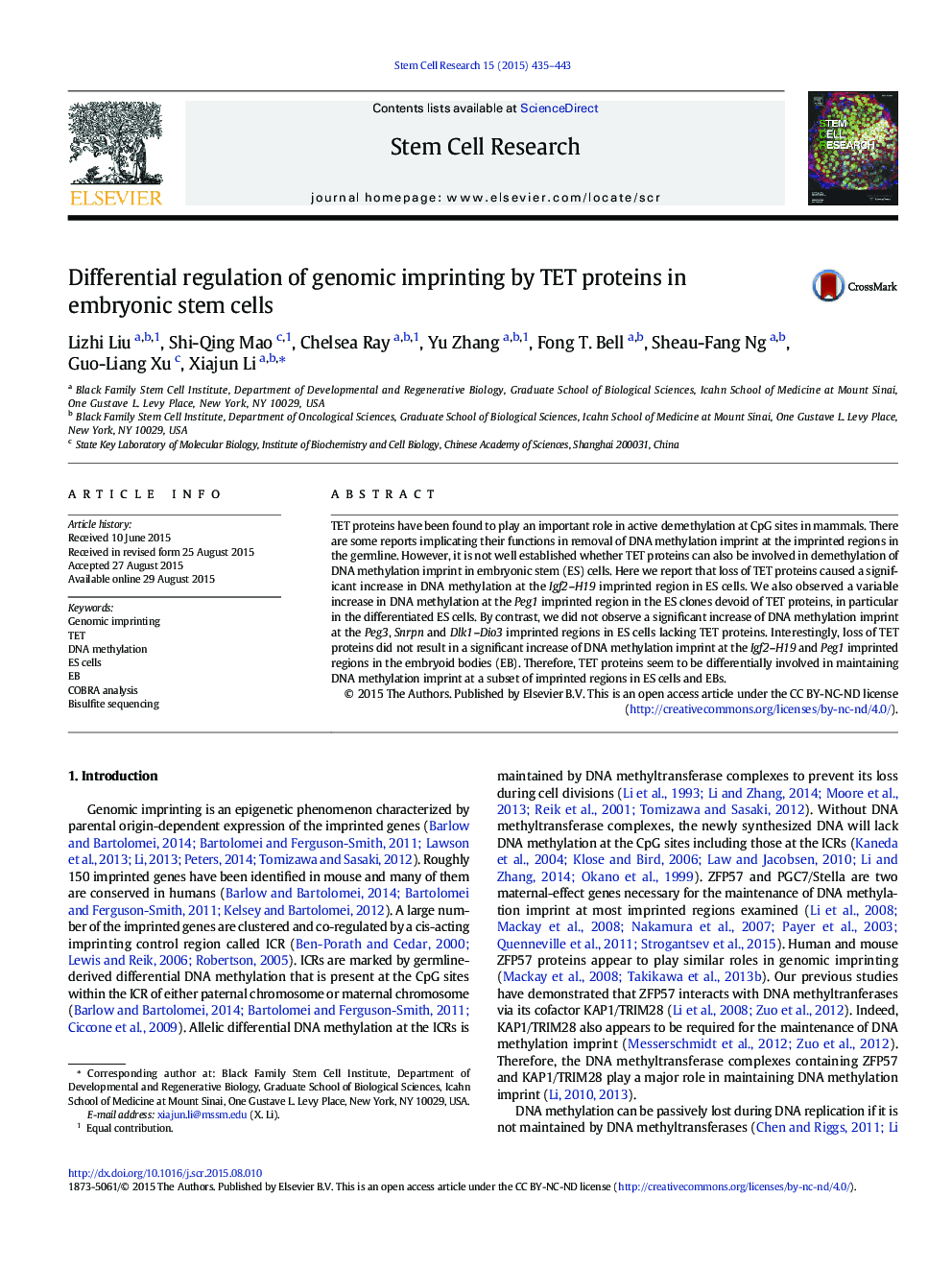| Article ID | Journal | Published Year | Pages | File Type |
|---|---|---|---|---|
| 2094150 | Stem Cell Research | 2015 | 9 Pages |
•Loss of TET proteins causes hypermethylation at a subset of imprinted regions.•TET proteins are involved in the steady-state DNA methylation imprint in ES cells.•TET proteins play partially redundant roles in the imprinted regions.•Imprinted regions respond differently to loss of TET proteins in ES cells.
TET proteins have been found to play an important role in active demethylation at CpG sites in mammals. There are some reports implicating their functions in removal of DNA methylation imprint at the imprinted regions in the germline. However, it is not well established whether TET proteins can also be involved in demethylation of DNA methylation imprint in embryonic stem (ES) cells. Here we report that loss of TET proteins caused a significant increase in DNA methylation at the Igf2–H19 imprinted region in ES cells. We also observed a variable increase in DNA methylation at the Peg1 imprinted region in the ES clones devoid of TET proteins, in particular in the differentiated ES cells. By contrast, we did not observe a significant increase of DNA methylation imprint at the Peg3, Snrpn and Dlk1–Dio3 imprinted regions in ES cells lacking TET proteins. Interestingly, loss of TET proteins did not result in a significant increase of DNA methylation imprint at the Igf2–H19 and Peg1 imprinted regions in the embryoid bodies (EB). Therefore, TET proteins seem to be differentially involved in maintaining DNA methylation imprint at a subset of imprinted regions in ES cells and EBs.
